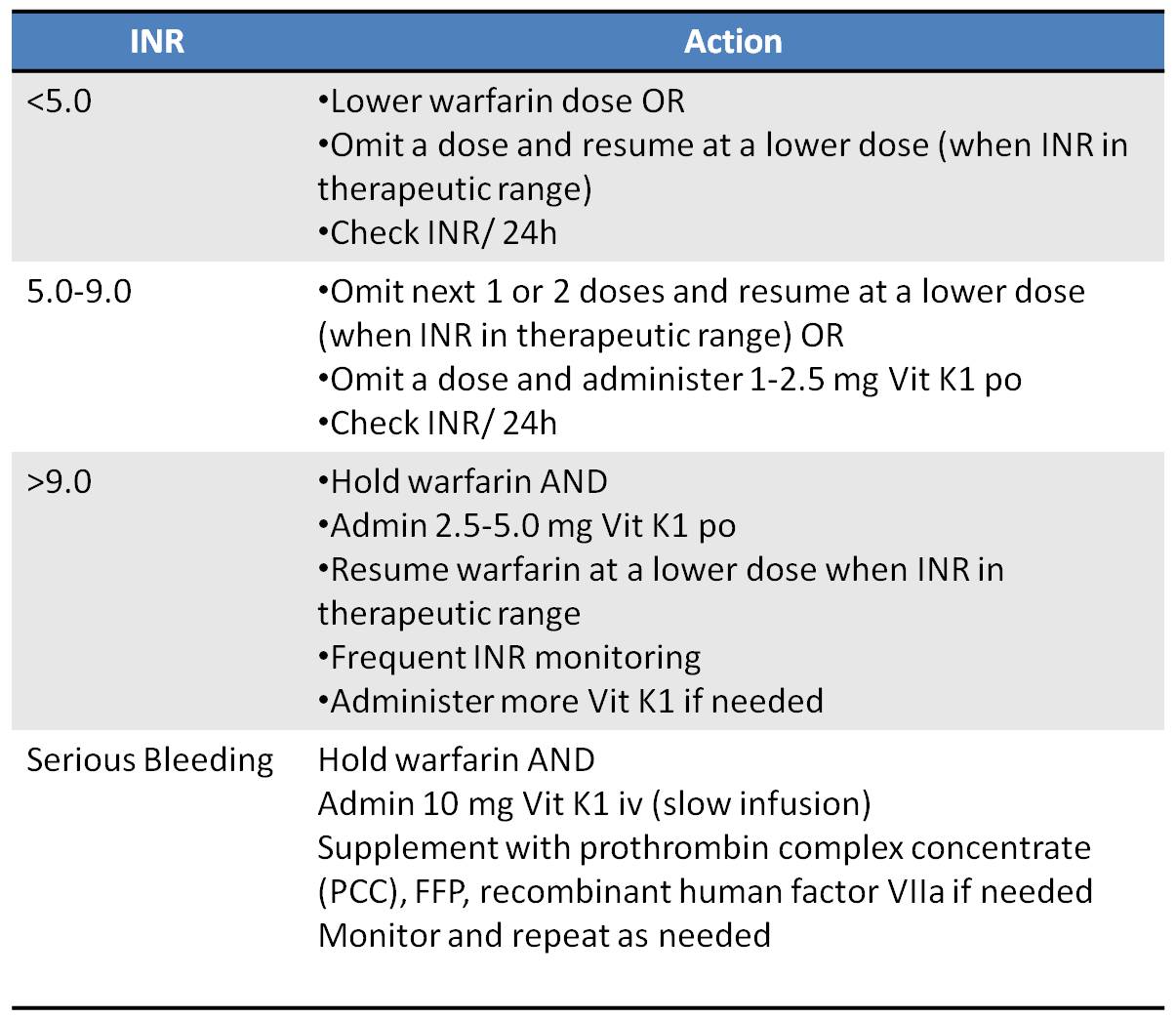
If your doctor tells you to stop taking warfarin, the effects of this medication may last for 2 to 5 days after you stop taking it. Your doctor will order a blood test (PT reported as INR value) regularly to check your body's response to warfarin. Keep all appointments with your doctor and the laboratory. Call your doctor if bleeding is unusual or if you fall and get hurt, especially if you hit your head. Avoid activities or sports that have a high risk of causing injury. Warfarin prevents blood from clotting so it may take longer than usual for you to stop bleeding if you are cut or injured. Your doctor may order a blood test to help find the dose of warfarin that is best for you. Some people may respond differently to warfarin based on their heredity or genetic make-up. If you experience any of the following symptoms, call your doctor immediately: pain, swelling, or discomfort, bleeding from a cut that does not stop in the usual amount of time, nosebleeds or bleeding from your gums, coughing up or vomiting blood or material that looks like coffee grounds, unusual bleeding or bruising, increased menstrual flow or vaginal bleeding, pink, red, or dark brown urine, red or tarry black bowel movements, headache, dizziness, or weakness. Tell your doctor and pharmacist if you are taking or plan to take any prescription or nonprescription medications, vitamins, nutritional supplements, and herbal or botanical products (See SPECIAL PRECAUTIONS), as some of these products may increase the risk for bleeding while you are taking warfarin. The risk for bleeding while taking warfarin is also higher for people participating in an activity or sport that may result in serious injury. Bleeding is also more likely to occur for people who take high doses of warfarin, or take this medication for a long time. Bleeding is more likely during warfarin treatment for people over 65 years of age, and it is also more likely during the first month of warfarin treatment. Also tell your doctor if you fall often or have had a recent serious injury or surgery.

Tell your doctor if you have or have ever had a blood or bleeding disorder bleeding problems, especially in your stomach or your esophagus (tube from the throat to the stomach), intestines, urinary tract or bladder, or lungs high blood pressure heart attack angina (chest pain or pressure) heart disease pericarditis (swelling of the lining (sac) around the heart) endocarditis (infection of one or more heart valves) a stroke or ministroke aneurysm (weakening or tearing of an artery or vein) anemia (low number of red blood cells in the blood) cancer chronic diarrhea or kidney, or liver disease. Warfarin may cause severe bleeding that can be life-threatening and even cause death.


 0 kommentar(er)
0 kommentar(er)
